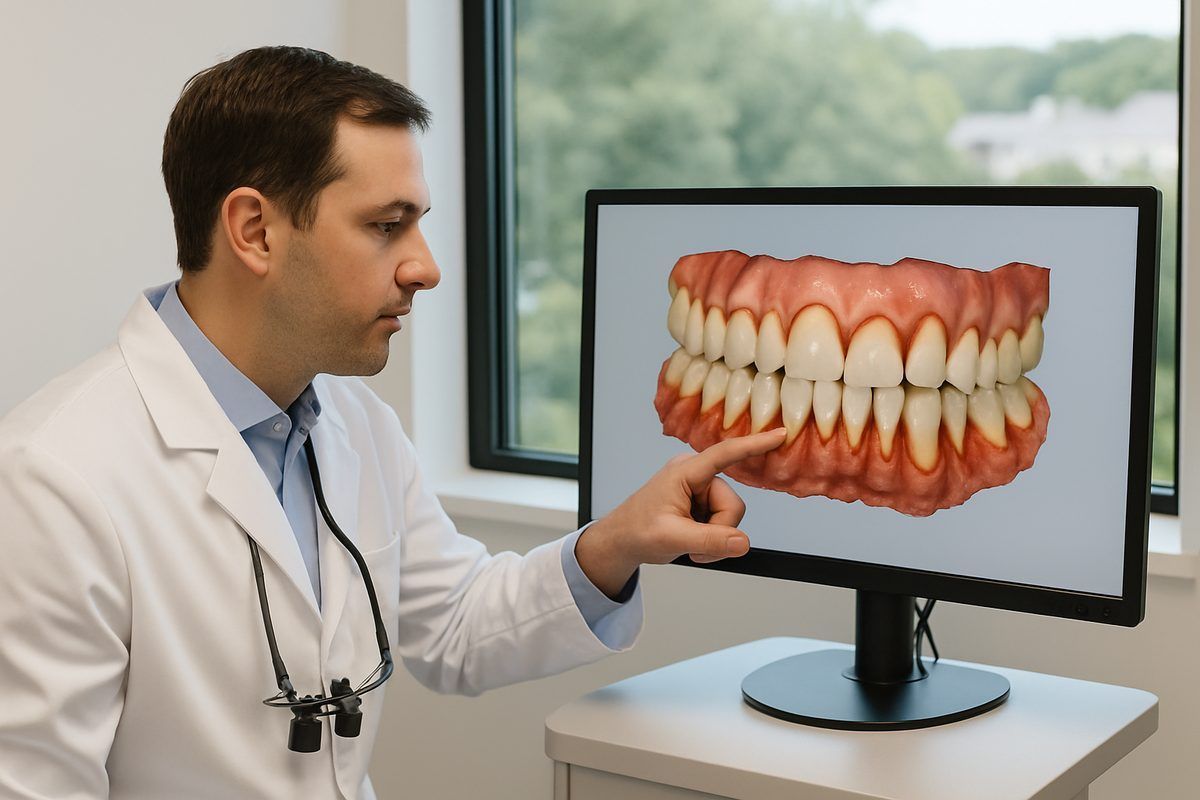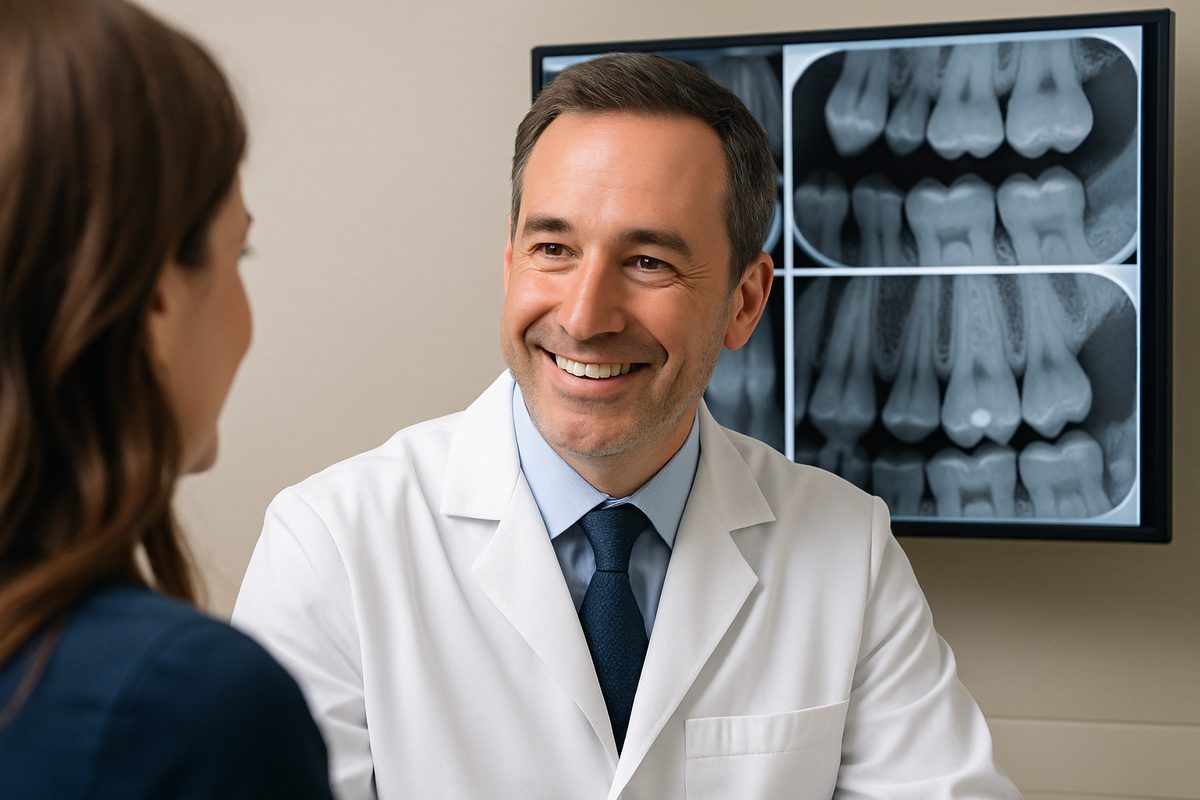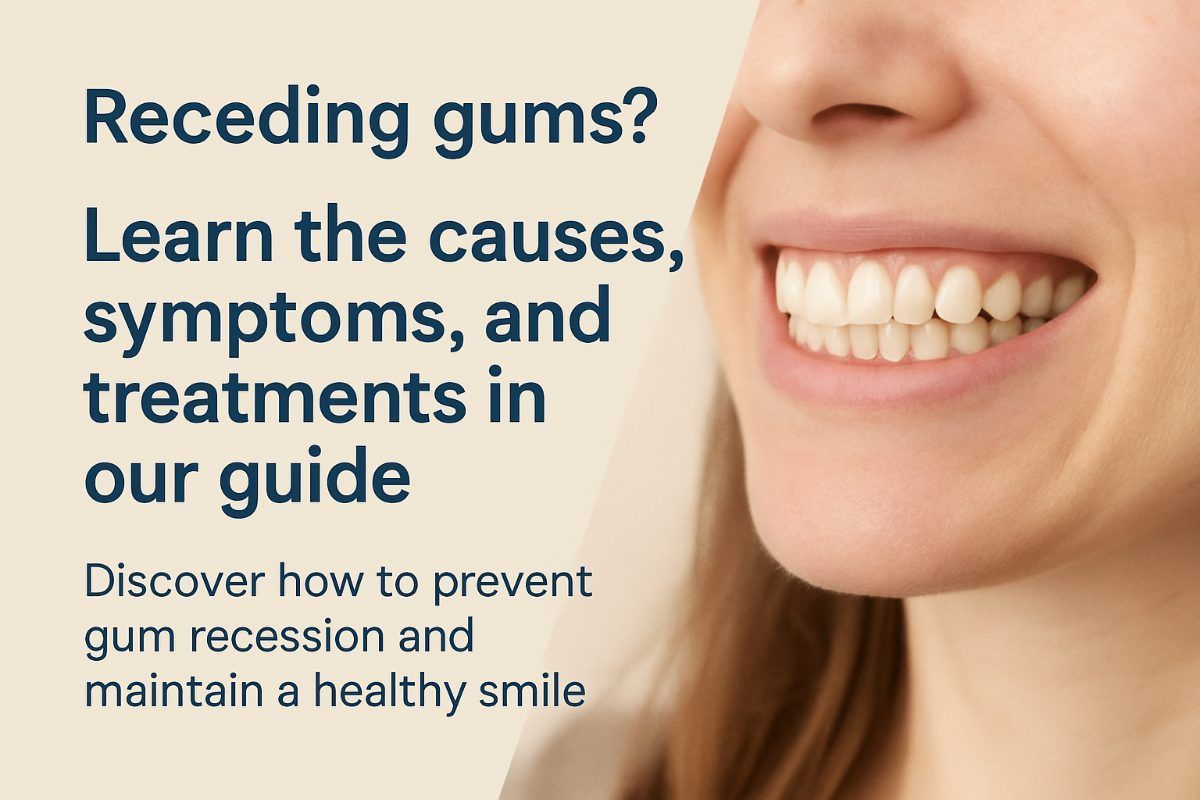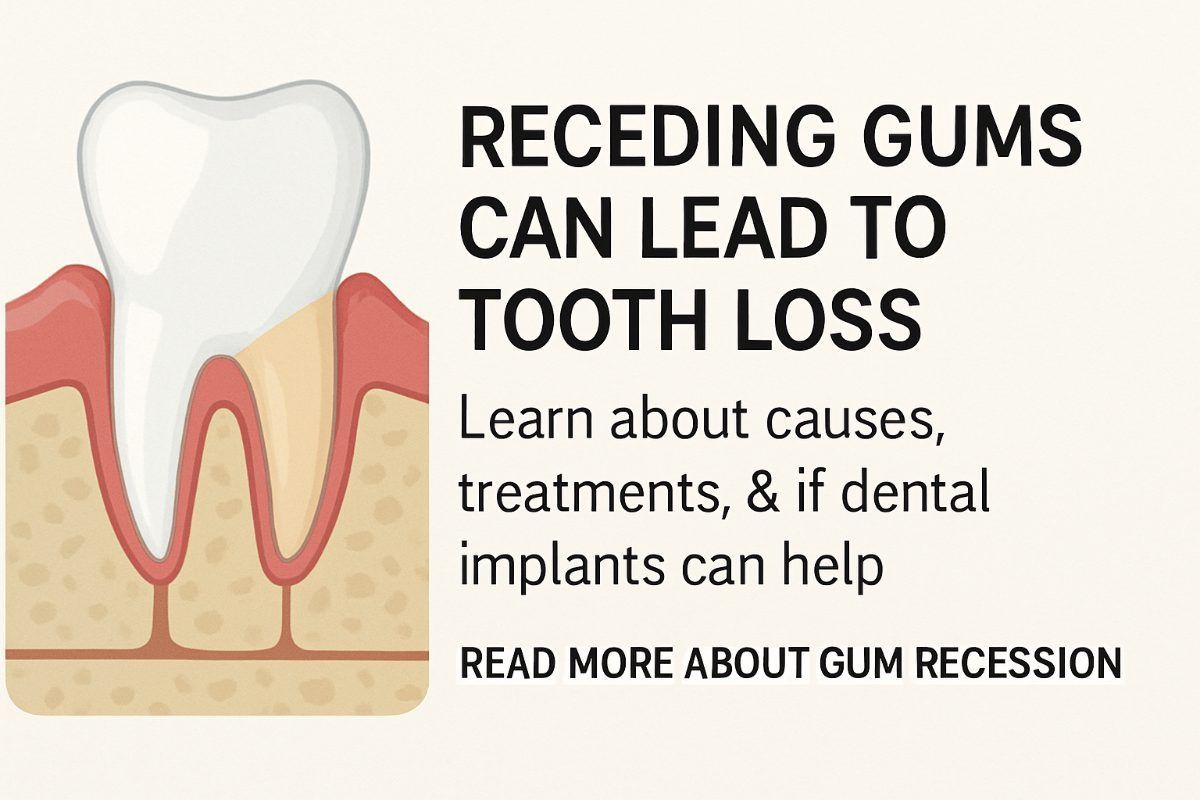Periodontal Disease: What You Need To Know In Greenwich, CT
Periodontal Disease: What You Need To Know In Greenwich, CT

This patient-friendly guide explains what periodontal disease in Greenwich, CT looks like, why it matters for your overall health, and when to get care. Read on to learn clear signs to watch for, common causes, how professionals diagnose gum disease, treatment options, prevention tips, and when to see a specialist. Practical next steps are included so you can protect your smile and your health.
What Is Periodontal Disease?
Periodontal disease (gum disease) is an infection of the gums and the bone that hold your teeth. It begins as gingivitis — inflammation of the gums caused by plaque — and can progress to periodontitis when bacteria and the body’s inflammatory response destroy gum tissue and bone. Left untreated, it can lead to loose teeth, bone loss, and impacts on overall health.
Signs & Symptoms To Watch For
Early signs
- Red, swollen, or bleeding gums when brushing or flossing
- Persistent bad breath or bad taste
- Tender or sensitive gums
Advanced signs
- Gums that pull away from teeth (receding gums)
- Loose or shifting teeth; changes in your bite
- Pus around teeth, jaw pain, or persistent infections
Common Causes & Risk Factors for Periodontal Disease in Greenwich, CT
Periodontal disease often starts with plaque build-up. Other common causes and risk factors include poor oral hygiene, smoking, uncontrolled diabetes, genetic predisposition, chronic stress, certain medications that reduce saliva, and dry mouth. Local lifestyle and environmental factors in Greenwich, CT — such as smoking rates, diet, and access to dental care — can affect your personal risk for gum disease.
How Dental Professionals Diagnose Gum Disease
Dentists and periodontists use several tools to diagnose gum disease:
- Periodontal probing to measure pocket depth around teeth
- Dental x-rays to evaluate bone loss
- Comprehensive oral exam to check gum health and tooth mobility
Advanced diagnostic tools
When needed, specialists may use CBCT scans for 3D bone and airway views, Oral DNA salivary testing to identify harmful bacteria, airway assessments for sleep-related issues, and digital imaging to improve treatment planning and predictability.
Treatment Options for Periodontal Disease in Greenwich, CT
Non-surgical care
Early and moderate gum disease is often managed with deep cleaning (scaling and root planing), improved daily oral hygiene, and targeted antimicrobial treatments. Regular maintenance and monitoring are critical to prevent recurrence.
Minimally invasive & laser therapies
Minimally invasive options can preserve tissue and speed healing. LANAP (laser-assisted periodontal therapy) targets disease while saving healthy tissue. PRF (platelet-rich fibrin) uses your own blood to promote repair. Ozone therapy reduces bacteria and inflammation with fewer antibiotics.
Surgical and regenerative options
Advanced cases may require gum surgery, bone grafts, or soft tissue grafts to rebuild lost support. When teeth are lost, implants or zirconia restorations can restore function and esthetics; patients with severe disease should work closely with specialists to plan implant therapy for long-term success.
Preventing Progression: Daily Care & Lifestyle Steps
- Brush twice daily with a soft brush and fluoride toothpaste
- Clean between teeth daily with floss or interdental brushes
- Quit smoking and limit alcohol
- Manage chronic conditions like diabetes with your medical provider
- Keep regular dental cleanings and consider periodic salivary/microbiome testing
When To See A Specialist
See a periodontist if you have loose teeth, persistent gum infection, deep pockets after initial treatment, rapid bone loss on x-rays, or failed prior treatments. A specialist can provide advanced diagnostics, surgical care, and coordinated treatment with your medical team.
About the Doctors and Tetrahealth’s Biologic Approach
Dr. Alex Volchonok, DMD, MS, FICOI, FIALD, FIABDM, FIAOMT, is a biologic board-certified periodontist and oral implantologist with advanced training in zirconia implants, LANAP, and biologic jawbone reconstruction. Dr. Michele Volchonok, DMD, FIALD, FIAOMT, is a biologic restorative and cosmetic dentist focused on minimally invasive, biocompatible care. Together at Tetrahealth’s Greenwich, CT location, they blend advanced diagnostics and toxin-free materials to treat oral inflammation and support whole-body health.
Why a biologic, minimally invasive approach matters
Minimally invasive, biologic care focuses on reducing systemic inflammation, using biocompatible materials, and preserving natural tissue. This approach aims to improve healing, lower complication risk, and coordinate dental care with overall medical health.
Technologies & Therapies That Improve Outcomes
- ROSA™ screening — combines radiographic, salivary, and airway data for a full-health view
- CBCT — 3D imaging for bone and airway assessment
- OralDNA testing — identifies pathogens to guide targeted therapy
- LANAP — laser treatment that preserves tissue and promotes reattachment
- PRF — speeds soft tissue and bone healing using your own blood
- Ozone therapy — antimicrobial, reduces inflammation and infection
- Zirconia implants — metal-free, biocompatible option for restorations
- CO₂ laser — precise soft-tissue surgery with faster healing
Frequently Asked Questions
Can gum disease be reversed? Early gum disease (gingivitis) can often be reversed with good home care and professional cleaning. Advanced periodontitis can be managed and stabilized, but full reversal of lost bone is limited and may require regenerative procedures.
Will treatment hurt? Most treatments are well-managed with local anesthesia, lasers, and minimally invasive techniques to reduce discomfort. Recovery varies by procedure.
How long until I see improvement? Many patients notice reduced bleeding and better breath within days to weeks after deep cleaning; full healing and bone stabilization take longer and depend on disease severity and follow-up care.
Are implants safe if I have gum disease? Implants can be safe, but active infection must be controlled first. A coordinated plan with a periodontist helps ensure implant success and long-term oral health.
Looking For Care For Periodontal Disease in Greenwich, CT?
If you’re concerned about periodontal disease in Greenwich, CT, schedule an evaluation to review symptoms, get advanced diagnostics (ROSA™, CBCT, OralDNA), and learn about biologic, minimally invasive treatment options. Tetrahealth coordinates care with medical providers to support oral-systemic health and personalized healing plans.




